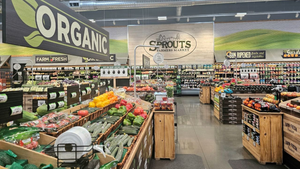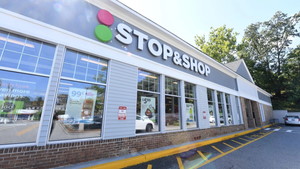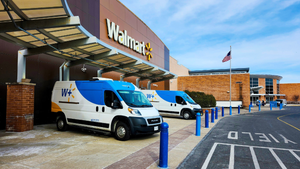How supermarkets can create a sound produce supply chainHow supermarkets can create a sound produce supply chain
Collaboration with strong and trustworthy partners is key for an effective structure
December 19, 2024

A solid supply chain is the backbone of a productive produce merchandising system. However, developing and utilizing efficient and reliable schemes that will limit costs and reduce waste can be an arduous endeavor.
“The fresh produce supply chain is a complex network with numerous challenges that can significantly affect efficiency and quality,” said Abe Eshkenazi, chief executive officer of the Chicago-based Association for Supply Chain Management. “Perishability and food safety are obvious concerns so there must be rapid and efficient movement through the supply or cold chain and strict adherence to quality standards and regulations.”
Seasonal production fluctuations, weather-related interruptions, and ever-changing consumer preferences are key elements that can impact store inventories and activity, he said, while there also is a vital need to support long-distance transportation and cold chain maintenance to ensure product quality and avoid spoilage.
Supply chain partners also must respond to the interests of environmentally conscious consumers and companies by emphasizing sustainability and lower carbon emissions, Eshkenazi said.
Chain visibility and collaboration are essential too, he said, along with incorporating advanced technologies. That includes using real-time tracking systems, predictive analytics, and artificial intelligence to optimize inventory management, improve forecasting accuracy, and enable initiative-taking decision-making, Eshkenazi said.
“By understanding and leveraging the latest technologies, supply chain professionals can identify potential disruptions early on and implement timely solutions,” he said. “Effective communication and collaborative planning can help mitigate risks, optimize resource allocation, and improve overall performance.”
Produce retailers should focus too on reliability, quality assurance, financial strength, and shared values when selecting supply chain partners, Eshkenazi said.
“Financially stable suppliers mitigate the risks of disruptions and defaults, ensuring a steady chain,” he said. That is important as the inherent perishability of fresh produce “necessitates rapid and efficient movement while maintaining required temperature and humidity conditions,” Eshkenazi said. “Any delay can lead to significant losses due to spoilage and waste.”
Investments in robust supply chain management practices and tools, including machine learning and predictive analytics, will further bolster operations he said, noting that some grocers are already using machine learning to analyze photos of perishable products to check for freshness and alert employees to the products that they need to remove from the floor.
“Predictive analytics-driven smart waste management systems also can signify when a load will be ready and notify the carrier ahead of time so a trailer full of produce isn’t left sitting for any longer than necessary,” Eshkenazi said.
About the Author
You May Also Like


.webp?width=300&auto=webp&quality=80&disable=upscale)



